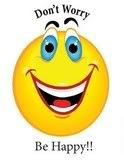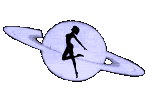
by Douglas Eby
talentdevelop.
The lyrics of Bobby McFerrin's song include:
"Don't worry. It will soon pass, whatever it is
In your life expect some trouble
But when you worry
You make it double
Don't worry, be happy"
Being happy and positive in general is a preferable stance toward life, better for our health, creativity and longevity, according to many experts.
A recent ABC 20/20 program, The 'Fear Industrial Complex' had numerous examples of how the media "provides the public with no shortage of things to fear. The message is clear: the world is a scary place, and you should be worried."
But as the program explained, so many of those fears are really unfounded. "We often worry about things that... are not very dangerous, but which seem it. And the reason they seem it is because of... the media who show images and tell stories about terrible, terrible things that happen," said Stephen Dubner, co-author of "Freakonomics."
Psychiatrist Judith Orloff, M.D. (author of "Positive Energy") warns, "Fear is the biggest energy thief there is. A master seducer and gigantic source of negative energy, fear shamelessly robs of us of everything good and powerful, preys on our vulnerabilities
"Many people become mesmerized for a lifetime, letting negative attitudes seize control. Enough! Though some fears are intuitively protective but we can't let the irrational ones bamboozle us." [From her article "Breaking the Trance of Fear"]
In contrast, actor Jim Carrey recently commented in an interview [Los Angeles Times], "I wanted to find out what makes people happy. I thought it was just making them laugh. And that's a fantastic thing, because that does give them temporary freedom from themselves.
"But it's not the answer. The cure is people realizing who they are and that there's nothing they can do on the earth or nothing that can happen here that will add to them or take away from them at all. You need to just relax."
He added, "What can I make out of the Lego set of life? Can I make something fun out of this? It's all about being happy, man."
And phobias, social anxiety, stage fright and other forms of anxiety can be psychologically
Seemingly endowed with endless effervescent glee, Drew Barrymore has been quoted, "You have to fight unhappiness... As much light as I have inside me, there's just as much darkness, I'm afraid. There's a polarity, and I still have demons to work out."
Musician Alanis Morissette thinks "We're taught to be ashamed of confusion, anger, fear and sadness, and to me they're of equal value as happiness, excitement and inspiration."
Temperament is an aspect of all this. In a BBC News article, "The science of happiness," psychologist Martin Seligman, author of the book Authentic Happiness, refers to changing our biological set point of happiness, and says, "The best you can do with positive emotion is you can get people to live at the top of their set range. But you can't take a grouch and make him giggle all the time."

"And I'm thinking, well, I would just like to be happy," he continues. "I'd like to do my work, and be a happy man. I've got enough memories of pain, of dysfunctional living, a reservoir to last me the rest of my life..."
But can anxiety or fear be useful? We aren't only about feeling happy all the time, and some degree of anxiety can benefit us.
AIDS researcher Anthony Fauci, MD commented, "One of the by-products of being a perfectionist and constantly trying to improve myself are sobering feelings of low-grade anxiety and a nagging sense of inadequacy... This anxiety keeps me humble."
In his article "Writers Thrive On Anxiety", Bryan Knight recalls reading a "startling statement": "A writer's fears are never 'conquered.' Nor should they be. When anxious, I'm also sharp: alert, observant, sometimes even witty. Fear energizes me." The quotation is from Ralph Keyes, author of "The Courage to Write."
And psychologist Robert Maurer thinks "Fear is good. As children, fear is a natural part of our lives, but as adults we view fear as a disease. It's not a disease. Children say they are afraid or scared, but adults use the clinical terms anxiety or depression. A writer should not view fear as something bad, but as essentially doing something right."
All of these terms - fear, anxiety, happiness - are highly variable, with many layers and levels. One of the most significant aspects may be in terms of our personal energy economy: having to deal with a disruptive level of anxiety (not simply any level) diverts feeling and thinking energy in self-limiting ways.
So overall, keeping ourselves feeling good, with a positive disposition about ourselves and life, is probably the most healthy and productive way to empower ourselves for achievement.
Teachers on "The Secret DVD" even consider it a metaphysical issue. Joe Vitale says, "It's really important that you feel good, because this feeling good is what goes out as a signal into the universe, and starts to attract more of itself to you. The more you can feel good, the more you will attract the things that help you feel good, and bring you up higher and higher."


SaturnsLady



No comments:
Post a Comment